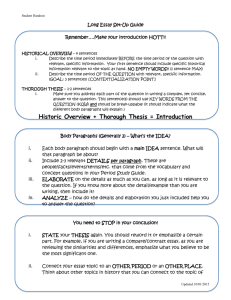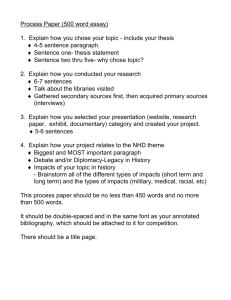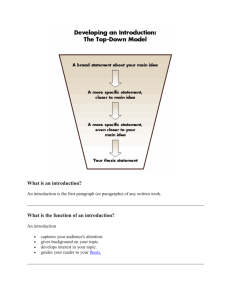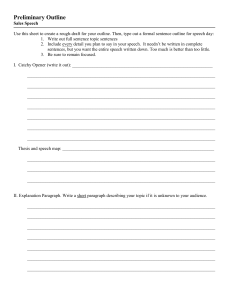Essay #1 Reflections - Arrowhead High School
advertisement
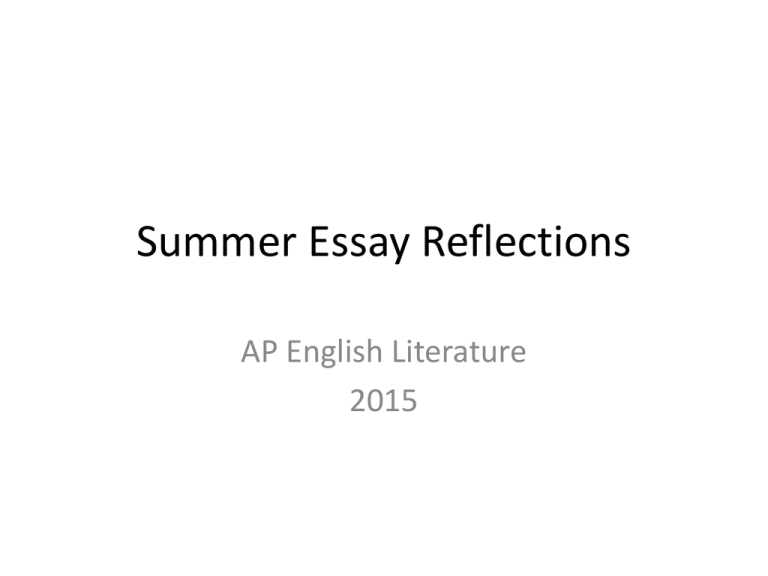
Summer Essay Reflections AP English Literature 2015 Avoid “I” Statements (and “you” / “we” / …) • “I would guess that it has to do with racial tension which is getting to be really bad.” • “I believe this poem was written to tell a life lesson with some personal background.” • “I came to believe…” • “I believe…” • “I feel…” • “I envisioned the author…” Instead of “this novel talks about…” is about Concerns Describes Details Discusses Depicts Imagines Identifies refers to References alludes to Suggests Implies Says hints (at) Vague Statements • “When analyzing this book, imagery and symbolism play large roles.” • “…Baraka creates a character that is similar to him, and a theme that is easy to relate to.” • “This novel really makes you think.” • “This book is both hard and easy to understand.” • “This story is really interesting when you analyze it.” Length • Essay (or paragraph, or sentence) length should be like a swimsuit: long enough to cover the subject, but short enough to keep it interesting. Thesis • Author’s first and last name • Title (punctuated correctly!) – Novels – Plays – “Poems” – “Short Stories” • Theme Theme • The author’s message about humanity • The reason for writing/reading this story • Does your thesis contain a thematic statement? • Do your quotes relate to your theme? • Does your analysis explain, support, or extend your thesis statement? (Can be more than one sentence) Organization - AQE • A Q E [Assertion (claim), quote, explain] • They key to keep you from summarizing the plot. • The key to keep you focused on your thesis • AQQE / AQEQE also options Organization • Have topic sentences that support thesis. – If you don’t or can’t, your thesis might be weak. • Each paragraph should have a purpose. • Each paragraph should have its own thesis (topic sentence). Make it the first sentence in each paragraph. More Organization • Consider outlining before writing. – Your thesis and topic sentences form the structure and flow of your essay. • I should be able delete everything but the first sentences of your paragraphs and still have a clear picture of where you’re headed. Introductions/Conclusions • Whether you write your intro immediately or defer it, the question you are answering must be obvious in the first paragraph. • Avoid introductions that are unrelated to the ideas in the essay. • Be brilliant until you run out of time. • Conclusion = final thoughts in the reader’s head – make them clear! Sentence Structure • Stay in control of your sentences. Simple and clear trumps flowery and wandering. • Goal: diverse sentences Be a Big Kid • Avoid finding information online that makes your essay clunky or forced. • Look up the critical stuff (age, sex, race, suicide status). • But if you’re not sure what it means or adds to the understanding of the novel/poem, leave it alone.
